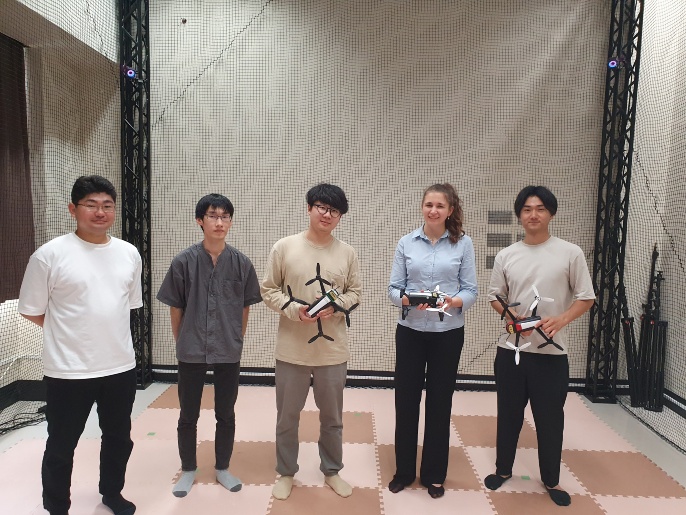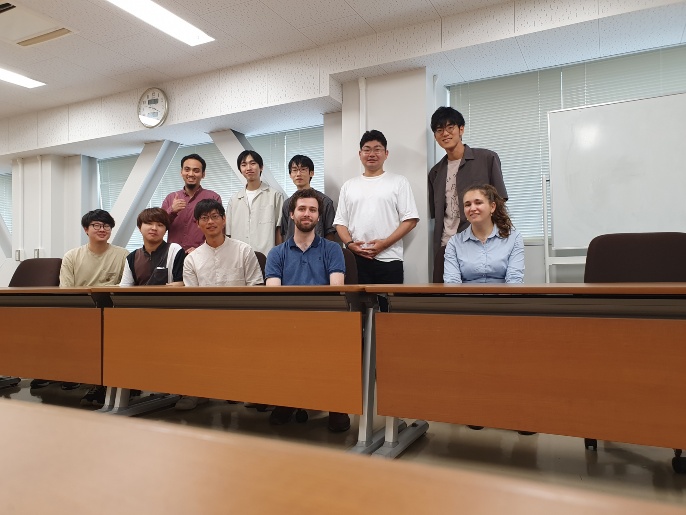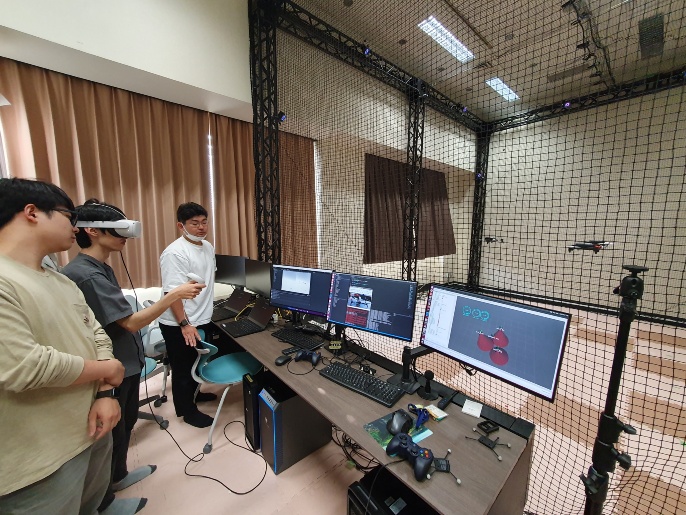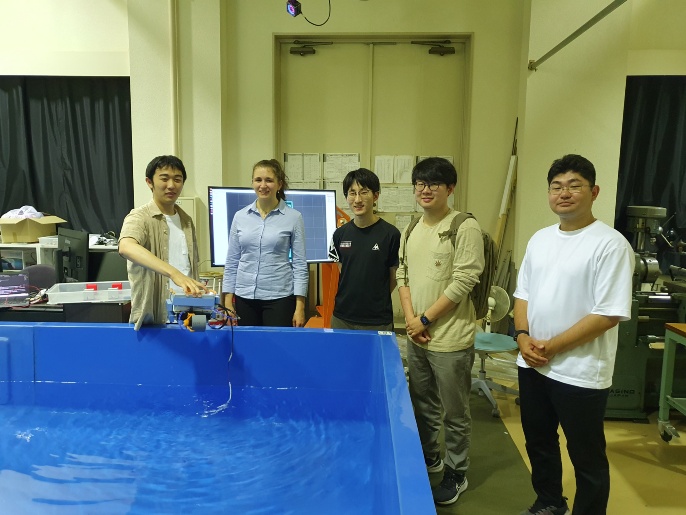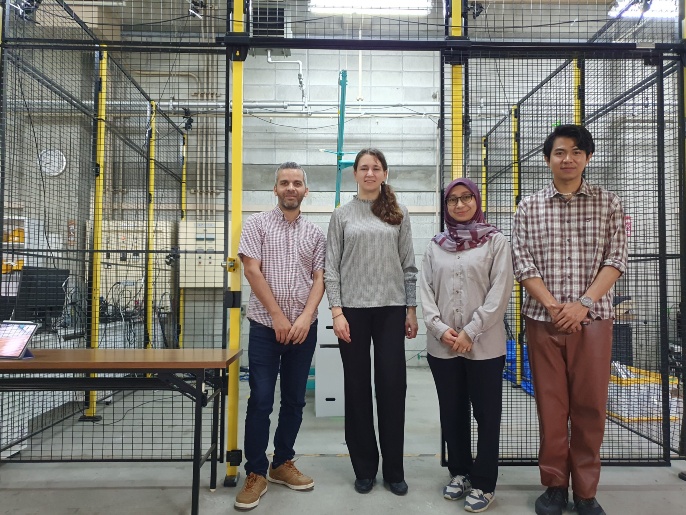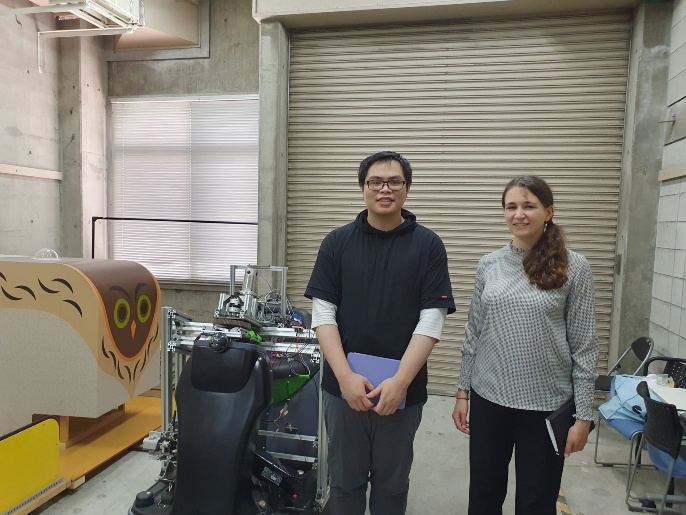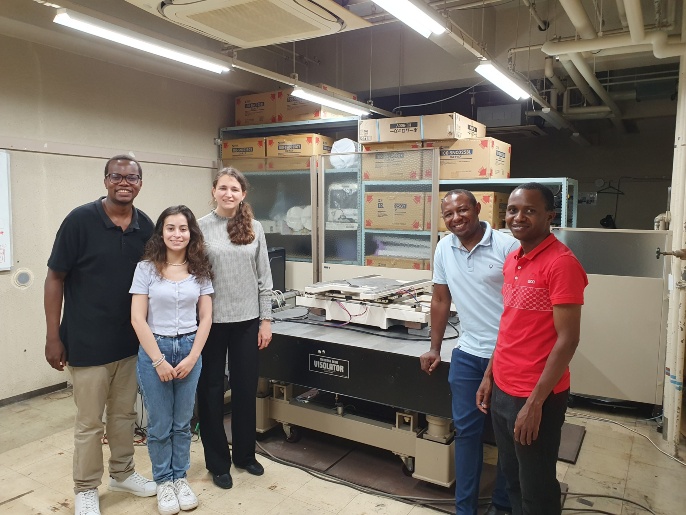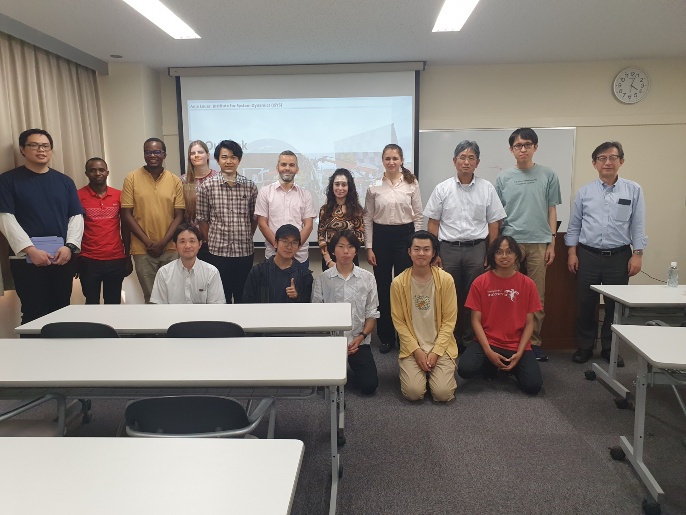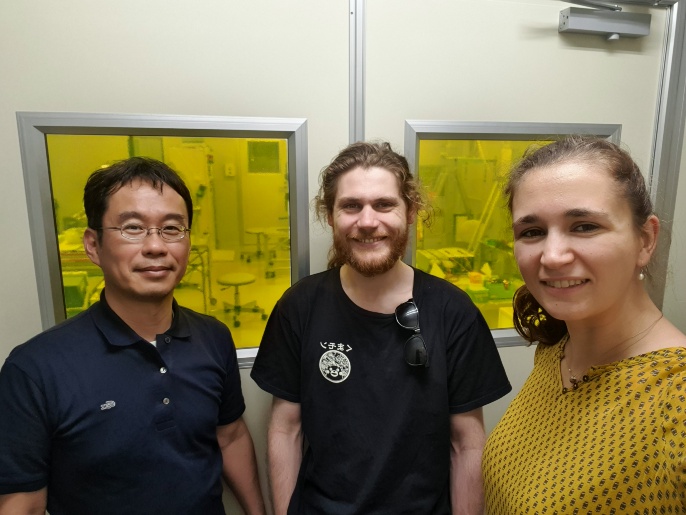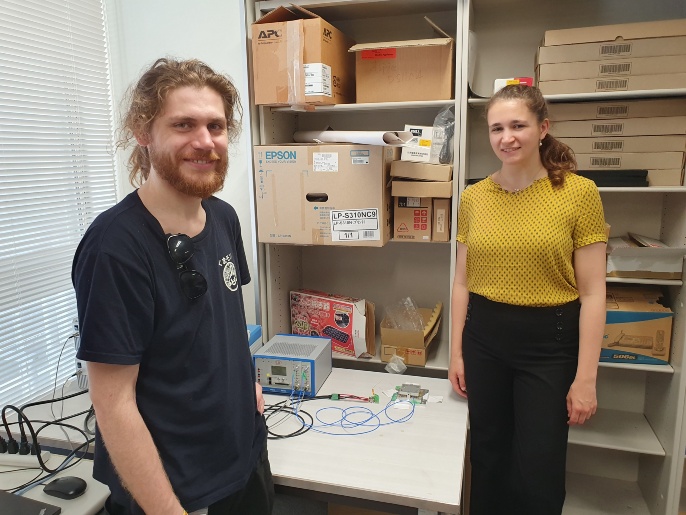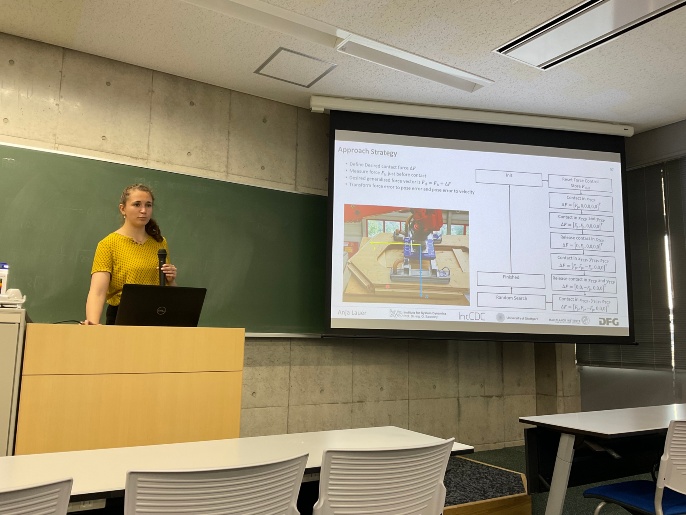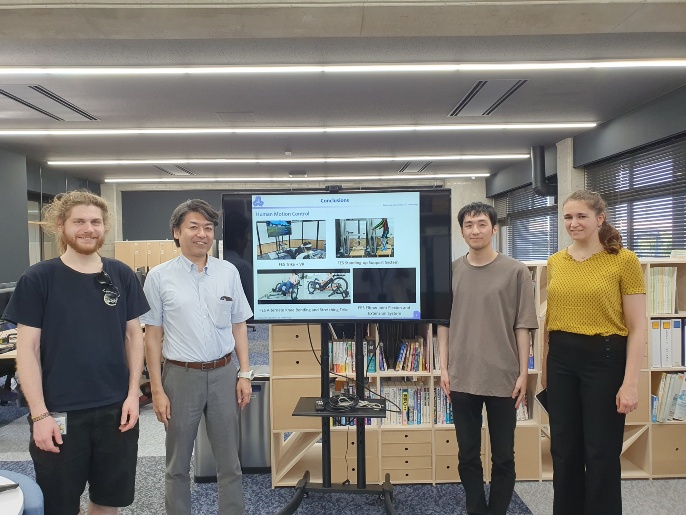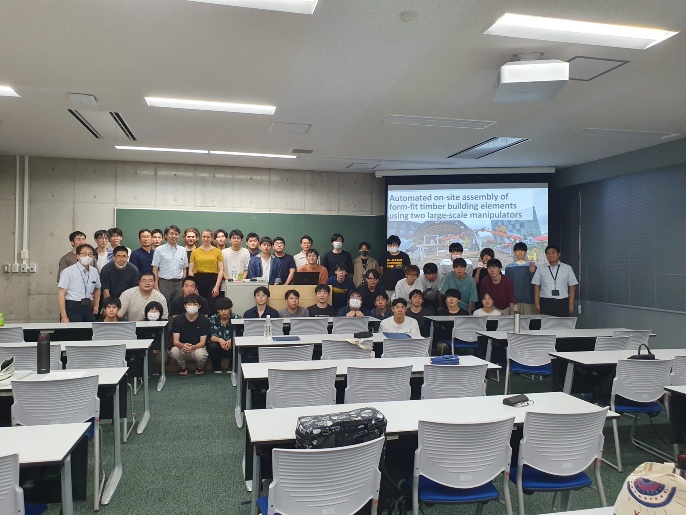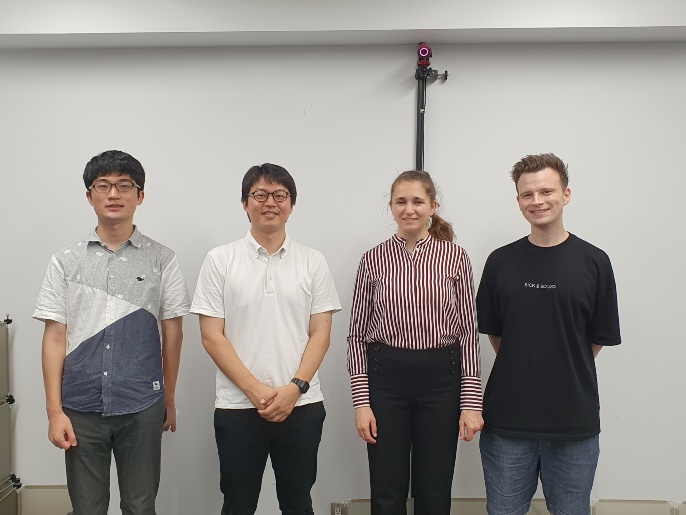IntCDC Early Career Researcher Anja Lauer reports from her research stay in Japan. As an ambassador of the University of Stuttgart, she presented the Institute for System Dynamics (ISYS) within the Cluster of Excellence IntCDC.
The academic exchange was enabled through the IntCDC Outgoing Grant, one of the Clusters' main supporting measures. With the goal of strengthening the academic network, deepening scientific cooperation, and promoting the personal growth of the young scientists, the programme offers a one to three month academic stay abroad.
Enjoy reading Anja's report!
During my research stay in Japan, I had the opportunity to visit nine professors at five universities. My overarching goal was to identify possibilities for future research collaborations and joint papers by discussing the robotics projects in the different labs. Presentations on my research project “Cyber-Physical On-Site Construction Processes using a Spider Crane Robotic Platform” (RP 16-2) – especially the automated on-site assembly at the novel IntCDC building demonstrator livMatS Biomimetic Shell in Freiburg – provided insights into the latest research findings. I motivated the scientists and students to engage in exchange and to collaborate with IntCDC.
TOKYO INSTITUTE OF TECHNOLOGY
The first visit was to Prof. Takeshi Hatanaka's lab at the Tokyo Institute of Technology. After my talk, I got to see the experiments in the “Aqua lab” (Differential Drive Boat Robot for scanning the ocean floor, distributed robotics) and “Sky lab” (3-wheeled distributed robotics and 3 distributed drones for coverage path planning and VR), where I also tried to control several drones at once using one joystick.
TOYOHASHI UNIVERSITY OF TECHNOLOGY
My second visit was a multiple-day visit to Prof. Naoki Uchiyama's lab for Systems Engineering in Toyohashi University of Technology. In the lab tour, I listened to a presentation about two ROS obstacle avoidance student projects. The research of the crane experiment includes path planning, feedback control and human-robot motion. The next research project was about feed drive for CNC machines. Time and energy optimal coverage trajectory generation for CNC additive manufacturing and simple adaptive control are current research projects for CNC machines. Another project aims to teach people about control theory by providing education content on Metaverse Environment & E-Learning using Unity software and VR. Two double-degree students showed me their progress on their Master's theses and we discussed their work about underactuated load-sway control of a rotary crane using switching control and TCP position calibration of industrial robots. After my talk, I met Prof. Hirotsugu Kamahara, who is setting up a global engagement centre in TUT. We discussed about interdisciplinary projects, patents and the management and organisatorial aspects of start-ups and large-scale projects such as IntCDC.
KANAZAWA UNIVERSITY
At the Kanazawa University, I met Prof. Ichiro Jikuya and my master student Jonathan Hort, whose master thesis I am supervising on behalf of the University of Stuttgart and ISYS. We discussed his thesis (repetitive control) and had a look at the real experiment with the cold chopper. We also discussed the other research projects in the lab, mainly a satellite project for which Prof. Jikuya provides the attitude control. Then I discussed my research with Prof. Jikuya.
KANAZAWA INSTITUTE OF TECHNOLOGY
Prof. Jikuya had organised meetings at the Kanazawa Institute of Technology and introduced me to three robotics professors there: Prof. Hiroyuki Kawai, Prof. Ryoichi Suzuki and Prof. Toshiyuki Murao. Prof. Kawai gave me a tour of the lab before my talk, where I saw assistant systems for humans such as stability, body balance, knee bending and stretching structures. Prof. Murao showed me his drone and vehicle pose control and visual feedback control. We visited the Yumekobo Lab, an innovation center, and the Challenge Lab, where students can create their own projects and work together with researchers from different departments.
UNIVERSITY OF TOKYO
My last station was the University of Tokyo, where I met Prof. Masayuki Fujita and Prof. Junya Yamauchi. After my talk, Prof. Fujita encouraged German-Japanese research collaborations. With Prof. Yamauchi I discussed his research on persistent coverage control, learning unknown environments and human-robot interaction. Especially interesting where the maintenance robots, which are mainly drones that inspect bridges and buildings for cracks.
| Contact | For further infromation on the research stay in Japan: Anja Lauer For further information on the IntCDC Outgoing Grant: Michaela Mey |
|---|








